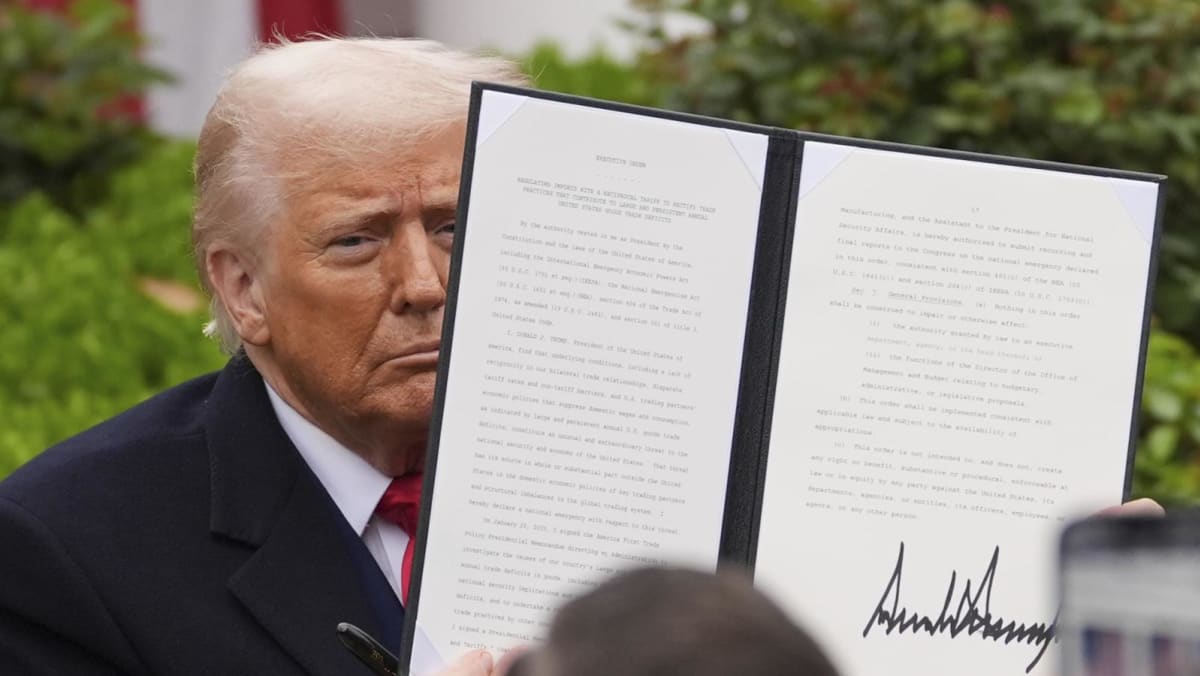44% of Singaporeans Ditch US Brands After Trump Tariffs
Trump tariffs shift sentiment in SG: as US brands fall, China rises, and confidence at home grows.
The recent imposition of tariffs by former U.S. President Donald Trump has significantly impacted Singaporean consumer sentiment toward American brands, with 44% of respondents stating they will actively avoid U.S. goods moving forward.

This shift, revealed in the SensingSG Q2 2025 survey by Blackbox, highlights not only economic repercussions but also a cultural reevaluation of "Brand America."
Below is an outline exploring the key findings, demographic insights, and broader implications of this trend.
Sentiment Shift Toward the U.S. and Trump
| Category | Key Details | Insights |
|---|---|---|
| Perception of Trump’s Tariff Policy | - 49% of Singaporeans say their perception of President Trump has worsened due to his tariffs policy, compared to just 30% whose perception has improved. - Younger demographics (ages 21–29) are slightly more forgiving, with 38% viewing Trump positively, while older adults (ages 60+) are harsher critics (52% negative). |
A significant portion of the population has a negative view of Trump’s tariffs, with older adults being more critical. |
| Impact on U.S. Entities | - 35% now hold lower opinions of U.S. companies and U.S. goods and services. - 33% view Americans positively, with youth (ages 21–29) showing the highest approval (45%) - 33% view Americans negatively, particularly males (37%). |
Tariff policies have negatively influenced perceptions of U.S. entities, though younger individuals still show some positivity toward Americans. |
| Consumer Spending Trends | - Over the past six months: - 33% reduced spending on U.S. goods and services, compared to 24% who increased spending. - Only 18% plan to retain the same buying habits toward American goods in the future. |
A trend of reduced consumer spending on U.S. products indicates growing discontent with American goods, likely influenced by tariff policies. |
![Small Chinese brands gain big names overseas[3]|chinadaily.com.cn](https://usa.chinadaily.com.cn/china/attachement/jpg/site1/20160610/b083fe955fd618c43bf825.jpg)
Rise of Chinese Brands Amid Shifting Preferences
China Outperforms the U.S. Across Categories
Chinese brands are outperforming U.S. offerings in several categories. These include electronics, fashion, social media, and groceries.
Biggest Net Gains for China
China saw the biggest net gains in household appliances, up 9 points. Next is lifestyle experiences, which recorded a 7-point increase. Meanwhile, motor vehicles escalated by 6 points.
Comparative Spending Trends
In China, 35% of consumers increased their spending. Conversely, 28% decreased their spending. Young consumers, aged 21–29, led this trend. 36% of them increased spending on Chinese goods.
While in Singapore, local goods saw the highest spending increase. Overall, this was 38%. Among youth, it reached 44%.
Domestic Confidence and Economic Optimism
National Sentiment
99% of Singaporeans believe the country is heading in the right direction, a rise of 2 points and the highest since SensingSG tracking began.
Eighty-nine percent are satisfied with current conditions, up 4 points, with satisfaction among those under 30 at 92%.
Economic Outlook
Eighty-six percent rate current national economic conditions positively, an increase of 2 points. Fifty-seven percent expect further economic improvement in the next year, up 5 points.
Meanwhile, eighty-two percent feel their personal finances are in good shape, a rise of 3 points and up 18 points from 18 months ago.
“As cost pressures ease and fundamentals stabilise in Singapore, the public mood is shifting from anxious to assured.” — David Black, CEO of Blackbox

David Black, CEO of Blackbox
Demographic Insights on Tariff Impact
Future Buying Intentions
- 44% of Singaporeans plan to actively avoid U.S. goods in the future:
- Males: 50%
- Ages 40–49: 50%
- 38% remain undecided (“Maybe”), with females more likely to fall into this category (44%).
- Only 18% across all segments plan to maintain their current buying habits.
Youth vs. Older Generations
- Youth (ages 21–29):
- Increased spending on U.S. goods (33%) and Chinese goods (36%).
- Show relatively higher tolerance for American brands compared to older generations.
- Older adults (ages 60+):
- Least likely to increase U.S. spending (17%).
- Most likely to reduce or avoid U.S. goods (35% decrease, 52% negative on Trump).
Gender Differences
- Males:
- More likely to actively avoid U.S. goods (50%).
- Higher reduction in U.S. spending (36%).
- Females:
- More likely to be undecided (44% “Maybe”).
- Less inclined to avoid U.S. goods compared to males.
Broader Implications of the Tariff Fallout
Potential Fallout for US Businesses in Singapore
US multinational corporations may face soft boycotts, slowing sales, or challenges to their public image. Companies should consider localising their brand image or engaging in regional goodwill campaigns to rebuild trust.
Shift in Trade and Supply Chains
This trend may influence business sourcing decisions in Singapore, favoring China or ASEAN over the US. Watch for policy incentives that aim to de-risk reliance on American imports.

Political Sentiment Could Spill Over
Currently, 49% of people view Trump more negatively. This sentiment could extend to broader US political views if trade or foreign policy tensions escalate.
Inflation Perception Improving, but Fragile
While sentiment regarding inflation is improving, Singaporeans remain sensitive to price increases and geopolitical shocks. Policymakers and businesses must manage these expectations carefully.
In a Nutshell:
The Trump tariffs have triggered a significant shift in Singaporean consumer behaviour, with 44% actively avoiding U.S. goods and Chinese brands gaining ground across multiple categories.
However, this trend occurs against a backdrop of growing domestic confidence and economic optimism in Singapore.
Let us know what you think about this topic, and what do you want to hear next.
Source consulted: Blackbox's "SensingSG Q2 2025: Tariffs, Trust, and Turning Points"
You can now be our community contributor and make a pitch to have your favourite personality be on our show.
Join our community group and drop us your insights on this topic.

-Jun-01-2025-06-24-42-9139-PM.png?width=50&name=Square%20(2)-Jun-01-2025-06-24-42-9139-PM.png)



-2.png?height=200&name=2024%20website%20assets%20(1)-2.png)




Let us know what you think of this post